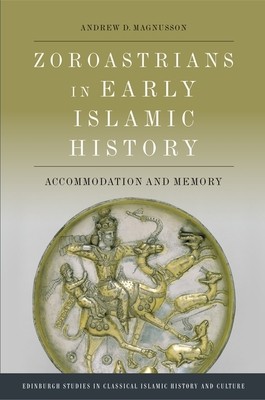
- We will send in 10–14 business days.
- Author: Andrew D Magnusson
- Publisher: Edinburgh University Press
- ISBN-10: 1474489524
- ISBN-13: 9781474489522
- Format: 15.6 x 23.4 x 1.4 cm, kieti viršeliai
- Language: English
- SAVE -10% with code: EXTRA
Reviews
Description
The second Muslim caliph, Umar ibn al-Khattab, once reportedly exclaimed, 'I do not know how to treat Zoroastrians!' He and other Muslims encountered Zoroastrians during the conquest of Arabia but struggled to formulate a consistent policy toward the adherents of a religion that was neither biblical nor polytheistic. Some Muslims saw Zoroastrians as pagans and sought to limit interaction with them. Others found ways to incorporate them within the empire of Islamic law. Andrew D. Magnusson describes the struggle between advocates of inclusion and exclusion, the ultimate accommodation of Zoroastrians, and the reasons that Muslim historians have subsequently buried the memory of this relationship.
EXTRA 10 % discount with code: EXTRA
The promotion ends in 22d.00:25:30
The discount code is valid when purchasing from 10 €. Discounts do not stack.
- Author: Andrew D Magnusson
- Publisher: Edinburgh University Press
- ISBN-10: 1474489524
- ISBN-13: 9781474489522
- Format: 15.6 x 23.4 x 1.4 cm, kieti viršeliai
- Language: English English
The second Muslim caliph, Umar ibn al-Khattab, once reportedly exclaimed, 'I do not know how to treat Zoroastrians!' He and other Muslims encountered Zoroastrians during the conquest of Arabia but struggled to formulate a consistent policy toward the adherents of a religion that was neither biblical nor polytheistic. Some Muslims saw Zoroastrians as pagans and sought to limit interaction with them. Others found ways to incorporate them within the empire of Islamic law. Andrew D. Magnusson describes the struggle between advocates of inclusion and exclusion, the ultimate accommodation of Zoroastrians, and the reasons that Muslim historians have subsequently buried the memory of this relationship.


Reviews